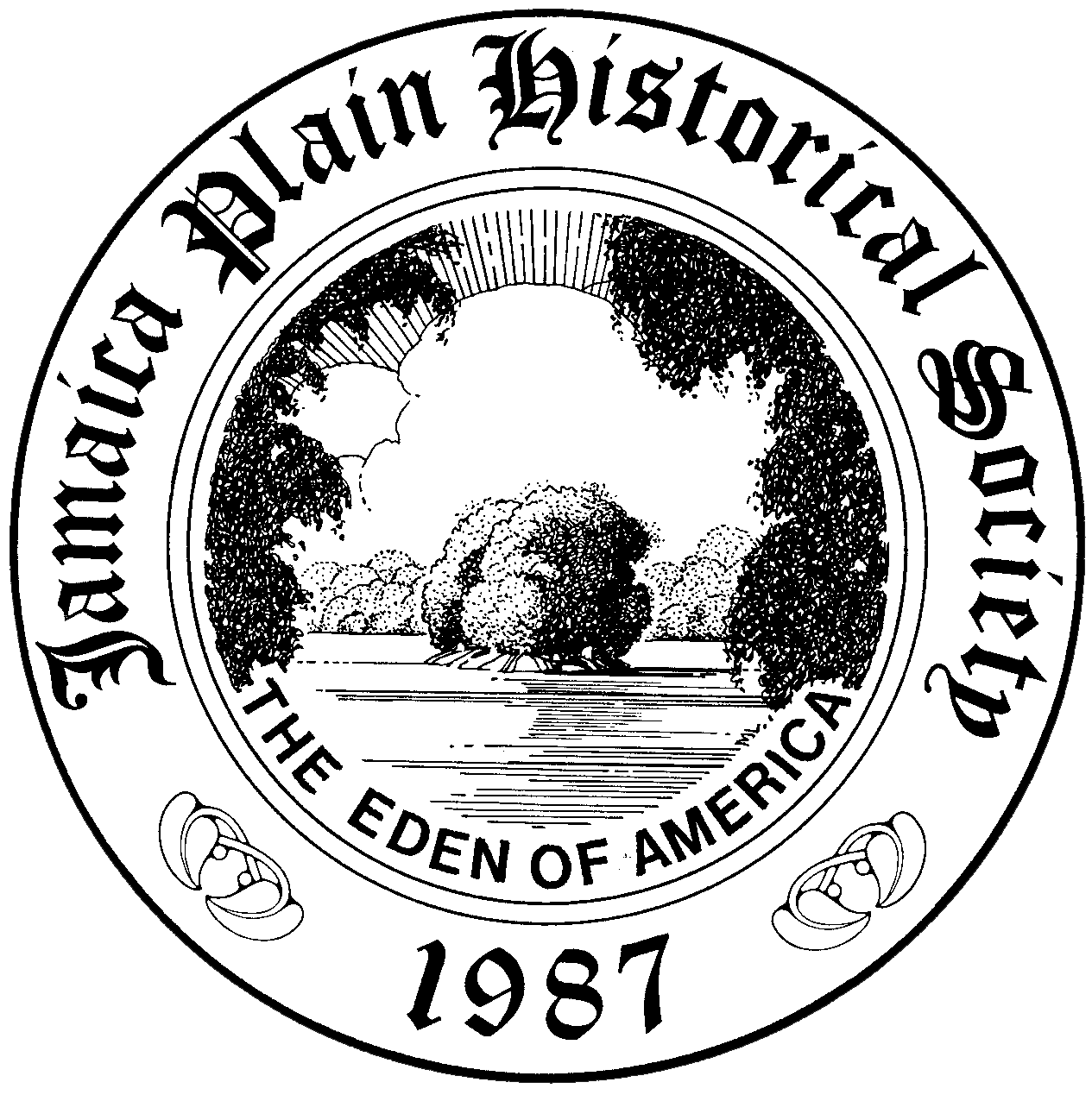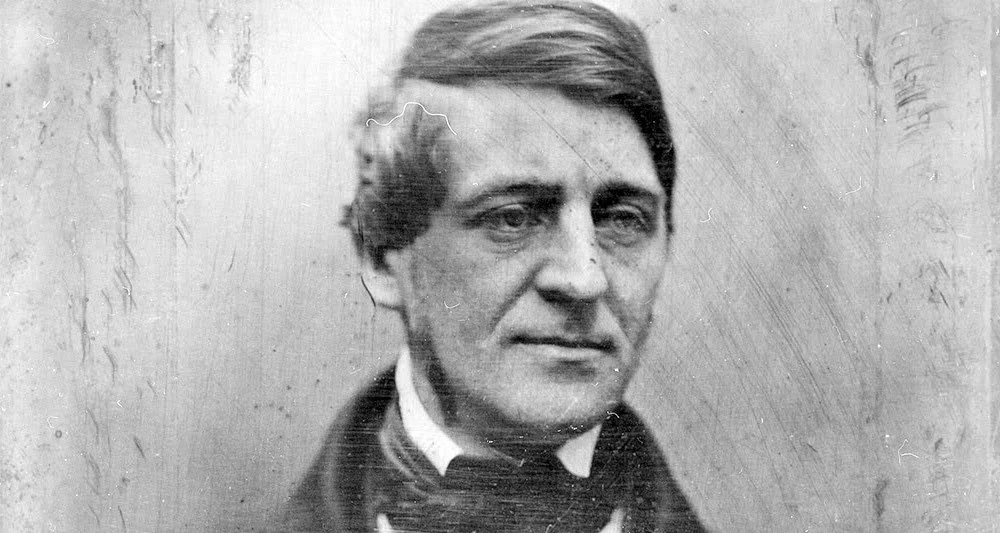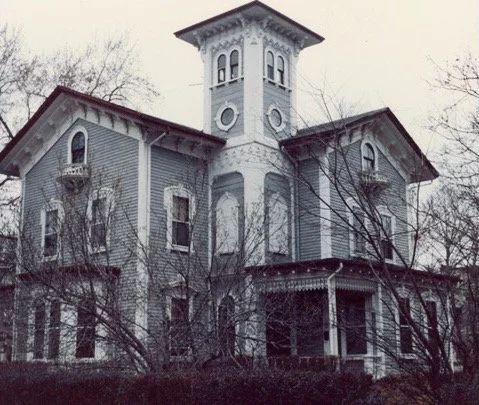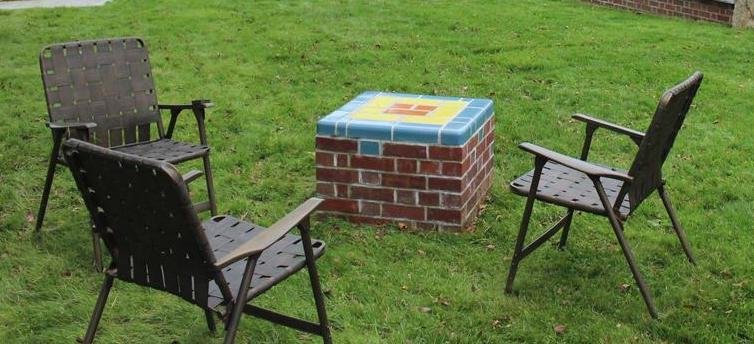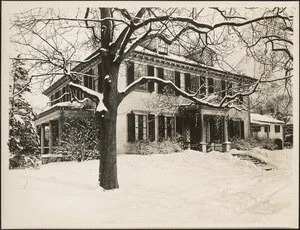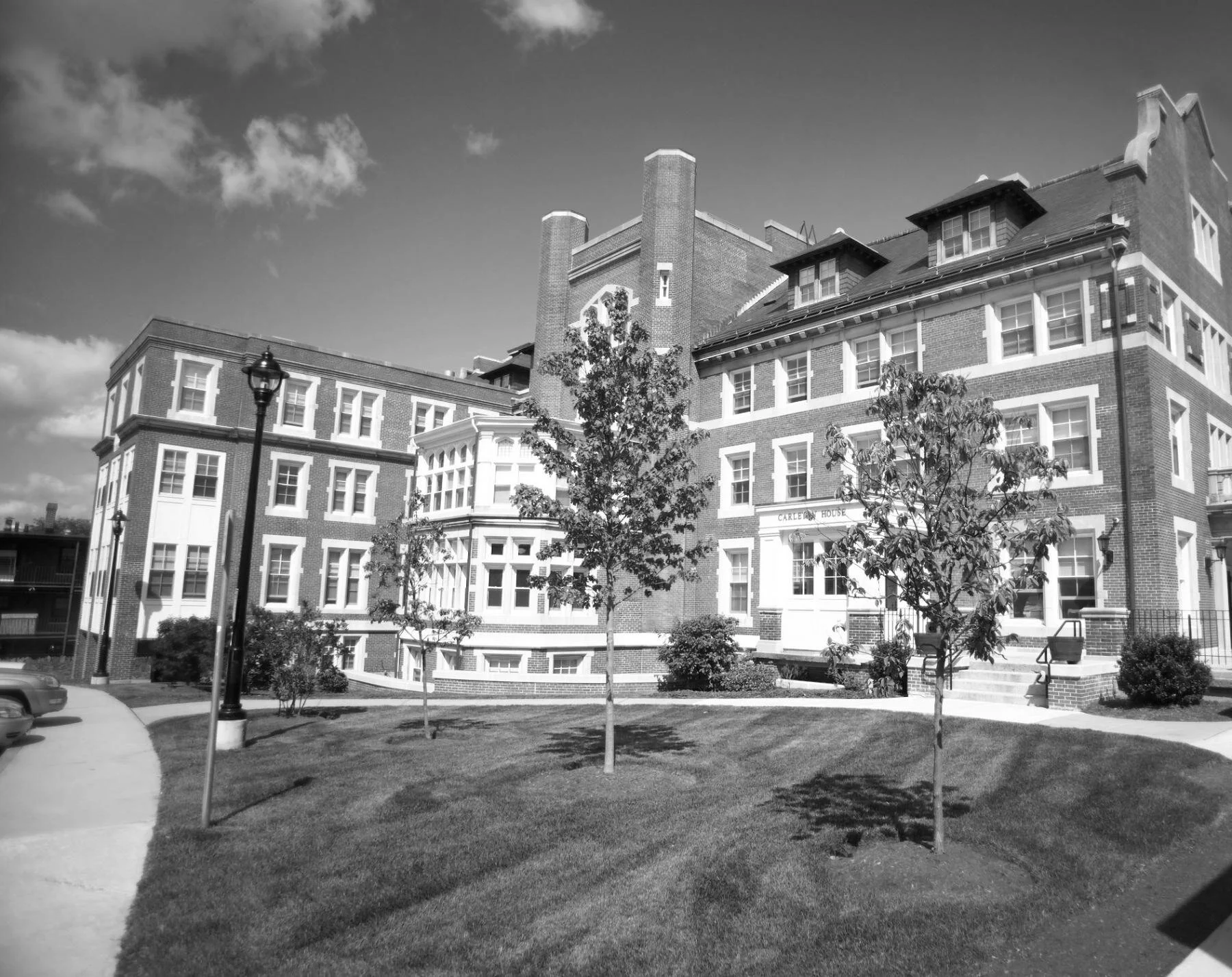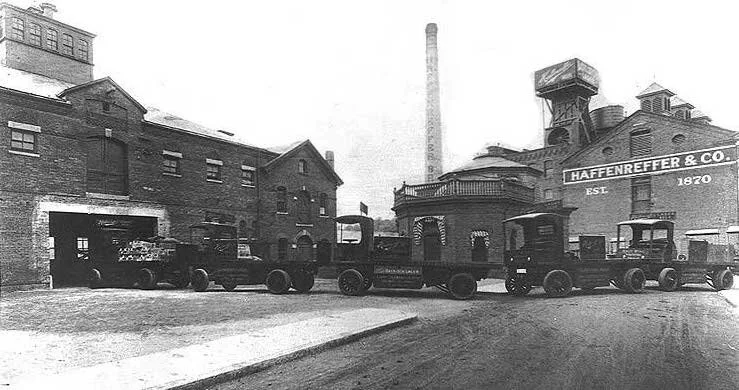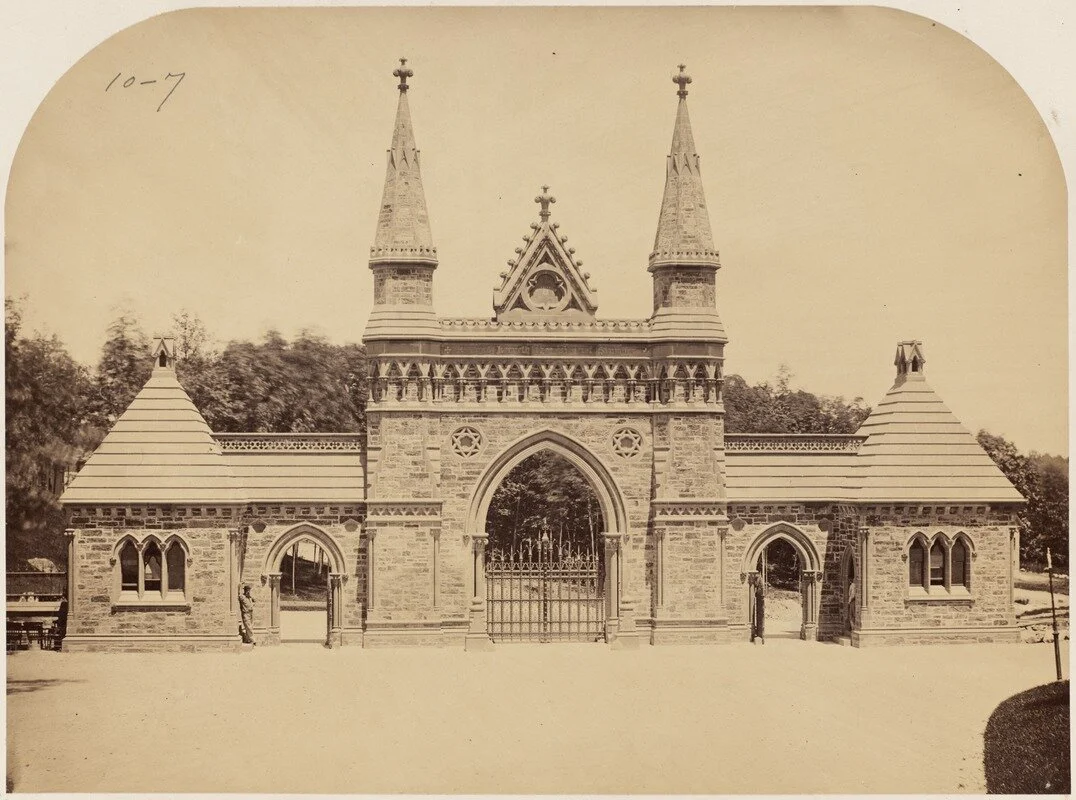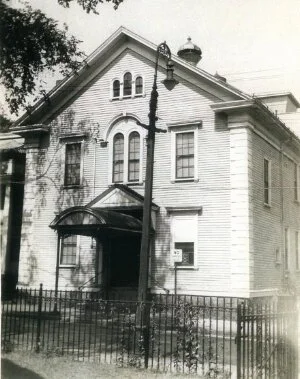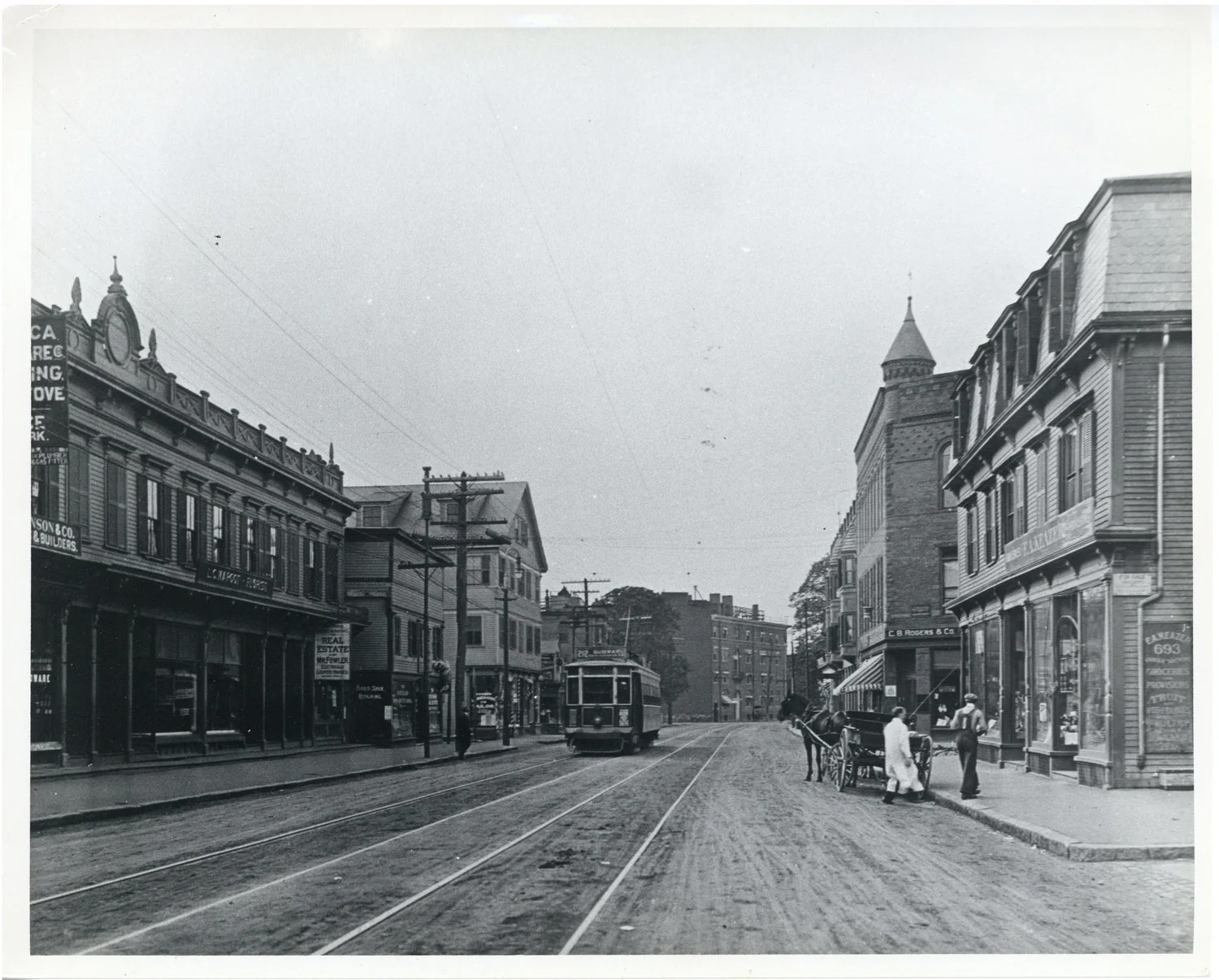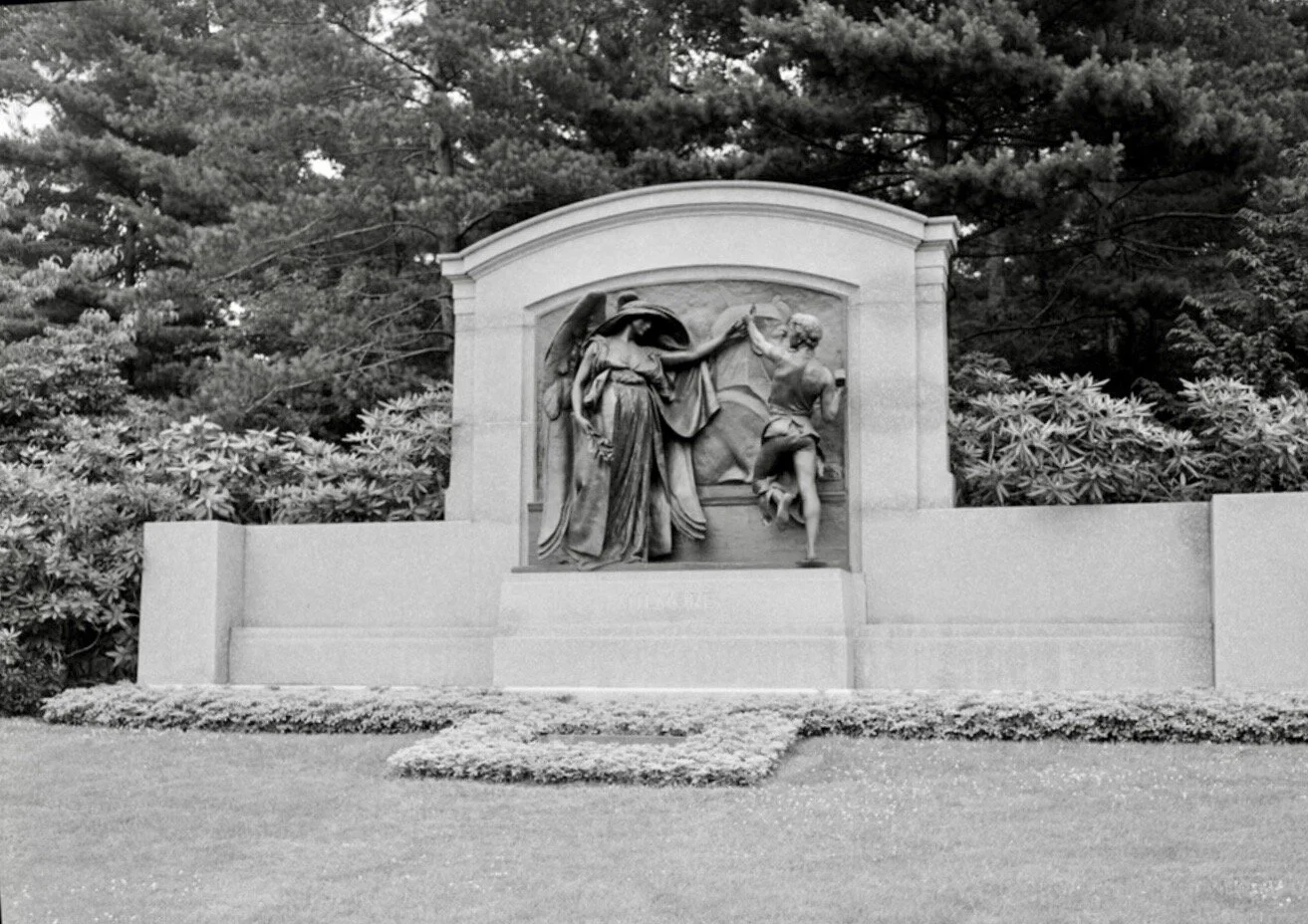Locales
The five-building Blessed Sacrament Complex includes the former church, convent, rectory, and two former parochial schools - Cheverus School and St. Norbert School. Originally built between 1894-1926 to serve a growing Irish and German Catholic parish in this part of Jamaica Plain, the Church of the Blessed Sacrament and associated parish buildings represent an architecturally significant collection of buildings designed in a variety of period styles
The District 13 Police Station, at 28 Seaverns Avenue in Jamaica Plain, is an unusual example of a High Victorian Gothic Style building. The building continued to serve as the neighborhood’s Police Station until being converted to condominiums in the early 1980s.
In 1918, the influenza epidemic devastated Boston's congested North End and left hundreds of orphans in its wake. Touched by this crisis, a Roman Catholic priest and a group of Italian Americans founded the first home for Italian children in Massachusetts. Franciscan Sisters devoted 24 hours a day to providing the children with a safe, loving, and spiritual environment. This talk from 9/22/2024 outlines the remarkable history of this remarkable institution.
Allandale Farm has been farmland since 1655 and many of its structures retain historic significance. It is mostly in Brookline but crosses over into JP too. It is the only working farm in Boston or Brookline.
Ethan Carr believes Franklin Park is one of the great urban parks in the world. Generations of Bostonians have loved this landscape and invested it with many diverse memories and meanings. Today the park is at a turning point. Mayor Wu has approved an Action Plan to guide its future, and the city and its partners have proposed new multi-million dollar construction projects. In this talk he argues that the time is right to consider the past, as well as the future, of Franklin Park.
Alex Krieger realized that his own neighborhood of Jamaica Plain is emblematic of a number of American ideals. Americans still identify with Ralph Waldo Emerson who lamented, “I wish for rural strength and religion, and city facility and polish...” Krieger uses his talk to trace this long American desire to occupy a place in between: city and country; civilization and nature, sophistication and simplicity, community and family and to argue that JP is an answer to Emerson’s wish.
A talk about the History of the area of JP known as Allandale. Once a rural farming area it still includes Boston’s only working farm. Centre Street has traversed the area since the 1600s and a famous colonial tavern once offered respite to weary travelers. Eventually, large estates came to be built in the area whose inhabitants created history in their own right. And we mustn’t forget the Allandale Spring - whose Spring House is still around and who waters were said to cure dyspepsia, dropsy, catareh, and many other ailments.
At the apex of the hill that is Rockview Street is the home of Joyce “Joy” Fisher, a life-long resident of the Jamaica Plain neighborhood. Joy began her life at the house at 48 Rockview Street. Though modest in appearance from behind tall bushes, 48 Rockview has unusual architectural features. It also contains an exquisite mural painted by her grandfather, a German muralist and interior decorator, who once lived next door.
Joe Bagley, the Archaeologist for the City of Boston presents the initial findings from the dig conducted at the Loring Greenough House in the fall of 2022.
Charlie Rosenberg of the Jamaica Plain Historical Society presents a talk about this fascinating industry and the over-sized role it played in Jamaica Plain’s economy. By 1880, the Jamaica Pond Ice Company had 22 icehouses on Jamaica Pond with a storage capacity of 30,000 tons.
Sally Zimmerman, an architectural historian and preservation planner provides an online presentation focusing on finding out more about the history of old houses and provides tips on preserving their historic character. Using lots of images from around our JP neighborhood Sally’s helpful tips will have you looking at your old house in a whole new way.
Near the corner of South Street and Carolina Avenue in Jamaica Plain is 30 Carolina Avenue, a unique brick building and wooden stable that has housed the Penshorn Roofing Company since 1960. If we stand on that corner and turn back the clock over 170 years, we would visit a time of great transformation and growth for the city of Boston and a family that played a significant role in those changes.
A presentation featuring JPHS VP and Historian Michael Reiskind focusing on the industrial history of the eastern end of Green Street (from Washington Street over to Amory Street). Zoom recording from January 13, 2022.
A presentation featuring JP artist, Matthew Hinçman discussing his latest commission for the City of Boston Wythe & Web which was installed this fall in front of the Jamaica Plain Branch Library and Curtis Hall. Zoom recording from January 13, 2022.
The James Michael Curley House was the primary residence, for 41 years, of James Michael Curley, one of the most legendary figures in 20th century Massachusetts politics. Curley built the house in 1915, during his first mayoral term, and lived there until 1956, the year after his last mayoral campaign. For seven decades, the Curley house has been a symbol of the evolving social, cultural and political presence of 19th century immigrants and their descendants.
The First Church of Jamaica Plain has witnessed the growth of Jamaica Plain from country town to city suburb and its site is of long historic association both to its immediate environs and to the City of Boston.
The Loring-Greenough House, built in 1760 for Joshua Loring, has been certified as a National, Massachusetts and Boston Historic Landmark because of its historical connections with the American Revolution and its value as an example of Colonial architecture. The mansion with its adjoining ell and gardens is the last of the numerous country estates of its period remaining in Jamaica Plain.
17 Cranston Street, built in 1871, is a unique and flamboyant wood frame residence. Carpenter Gothic and Italianate design motifs characterize its detail and it is unique as Boston’s only dodecagonal (12-sided) house.
Dr. Elizabeth Abbott Carleton, a New Hampshire native and a graduate of the New England Female Medical College, founded the New England Society for the Aged and Friendless in 1884 to offer long-term care for elderly couples of limited means. In exchange for the surrender of a couple's resources the Society provided its residents food, clothing, a small weekly spending allowance, and medical care.
The Haffenreffer Brewery is an intact example of 19th and 20th century industrial architecture. The complex's buildings were constructed between 1877 and the 1960s, a period during which they functioned as a brewery under the name of Boylston and then Haffenreffer. As the brewery operations expanded and changed, buildings were added both horizontally and vertically to create a complex of sixteen buildings.
Forest Hills Cemetery was established in 1848 as a municipal cemetery for the City of Roxbury. When Roxbury was annexed to Boston in 1868, Forest Hills became a private non-denominational cemetery, which it remains today. Since its creation, Forest Hills has grown from its original 72 acres to a total of approximately 250 acres.
Eliot Hall was built as a public meeting hall ca. 1832. Since 1878, it, has been the home of the Footlight Club of Jamaica Plain, which has been recognized by the New England Theater Conference as the oldest continuing amateur theatrical organization in the United States. The building is an architecturally notable Greek Revival/Italianate frame meeting hall located near what has been the historic, social, and political center of Jamaica Plain
The Arnold Arboretum covers some 265 acres of rolling land south of Centre Street and west of the Arborway in the Jamaica Plain district of Boston. Within the grounds are examples of over 6,000 varieties of trees and shrubs from all over the North Temperate Zone.
3474-3476 Washington Street in Jamaica Plain, Massachusetts is a three-story, two-family house that was built sometime between 1874 and 1886 by Isaac Harris Cary, a prominent merchant and real estate developer from Jamaica Plain. The double-frame house, located at the corner of Washington and Gartland Streets, is built in the Gothic Revival style with simple decorative trusses above the third-floor dormers and a hip-on-gable, or jerkinhead, roof.
69 Williams Street in Jamaica Plain is a silk dye house that was built in 1880 by Isaac Harris Cary, a prominent merchant and real estate developer from Jamaica Plain. Isaac Cary and his brother William operated dry goods stores in Boston and New York City, the NYC store eventually becoming the largest importer of fancy goods in the country.
The inestimable Boston historian Anthony Mitchell Sammarco speaks about his new book Jamaica Plain Through Time. Video of a talk that was held via Zoom on April 7, 2021.
A list of gaslights remaining in Jamaica Plain in 2021. Images of these existing lamps would be happily accepted.Image courtesy of Historical Society of Rivertown (http://rivertonhistory.com/)
The Milmore Memorial is a masterwork by the great American sculptor, Daniel Chester French. It honors two Irish-American brothers who were both sculptors - Martin and Joseph Milmore. The sculpture Death Arresting the Hand of the Sculptor was first installed in August 1893. It has since moved locations within Forest Hills Cemetery and gone through several pedestals/surrounds.
At the corner of Carolina Avenue and Lee Street in Jamaica Plain sits a charming cottage on an unusually large parcel of land for the surrounding neighborhood. This house, at 101 Carolina Avenue, was the first to be built on the street. Though significant for its age, also important is the role it played in the history of Jamaica Plain. In 1913, the house transformed from a single-family home into the home of the Jamaica Plain Neighborhood House Association. This article explores the history of the people who lived within its walls and, later, its life as a settlement house.
As part of its effort to petition the City of Boston to establish Doyle’s as an Historic Landmark, the Save Doyle’s Team spent months researching and documenting the story of this beloved institution. They have graciously offered to share it here.
